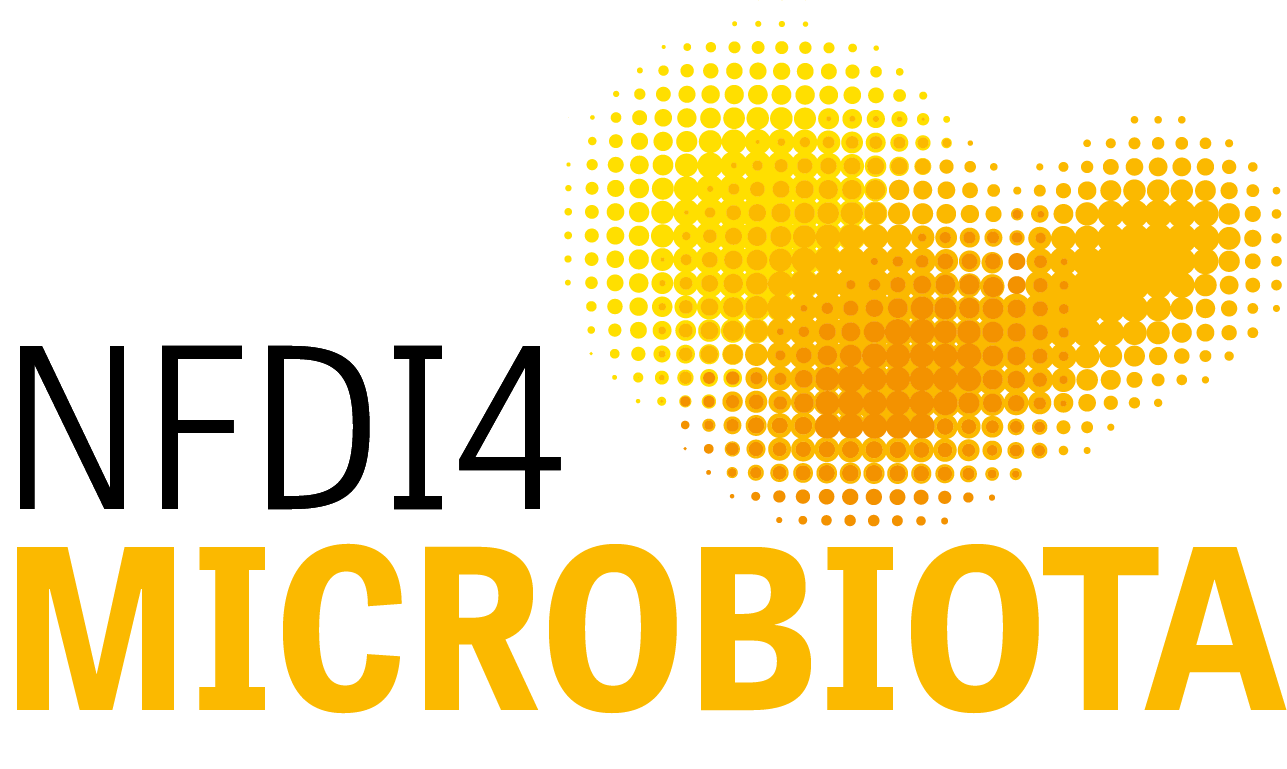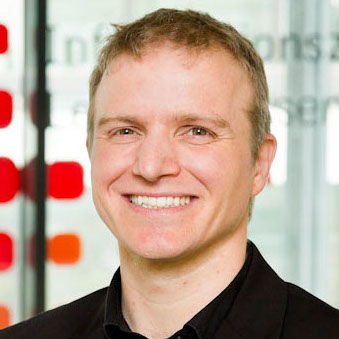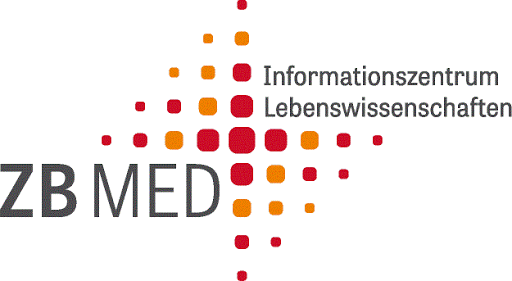
Über uns
Mikroben (Bakterien, Archaeen, einzellige Eukaryonten und Viren) spielen eine Schlüsselrolle für die Gesundheit von Mensch, Tier und ihrer Umwelt. Damit leistet die molekularbiologische Erforschung von mikrobiellen Spezies und Gemeinschaften einen wichtigen Beitrag für die Medizin, die Ökologie, die Landwirtschaft und den Klimaschutz. Neue technologische Fortschritte in der Hochdurchsatz-Analyse führen dabei zur Generierung umfangreicher Datenmengen, deren Verwaltung, gemeinsame Nutzung, Wiederverwendung und Interpretation eines der Ziele von NFDI4Microbiota darstellt.
Bestehend aus zehn erfahrenen Partnern und unterstützt durch fünf Fachgesellschaften und mehr als 50 teilnehmenden Institutionen hilft NFDI4Microbiota der Mikrobiologieforschungsgemeinschaft, indem es technische Lösungen bereitstellt, die Interaktion fördert, Schulungen anbietet und als zentrale Datendrehscheibe fungiert. Durch die Schaffung eines Cloud-basierten Systems bietet das Konsortium seinen Nutzern die Speicherung, Integration und Analyse von mikrobiellen Daten, insbesondere von Omics-Daten, an, um diese konsistent und reproduzierbar allen Bereichen der Biowissenschaften zugänglich zu machen. Damit generiert NFDI4Microbiota eine Infrastruktur, die es erlaubt, die Ergebnisse unabhängiger Projekte miteinander zu verbinden, und sorgt durch die enge Verknüpfung von Ausbildung und Services für eine effiziente und damit exzellente mikrobiologische Forschung.
Ziele
- Bewusstseinsschaffung für die Wichtigkeit der FAIRifizierung von Daten, Open Science und der reproduzierbaren Forschung in der mikrobiologischen Gemeinschaft
- Reproduzierbarkeit von Forschung durch Standardisierung der Datenprozessierung und Analyse sicherstellen
- Bereitstellung von adäquaten Methoden für die Übersetzung bestehender Daten in neue Erkenntnisse
- Unterstützung der Gemeinschaft durch umfassende Schulungsprogramme für eine effiziente und datenbasierte mikrobiologische Forschung
- Vernetzung der nationalen sowie internationalen mikrobiologischen Gemeinschaften
Aufgabenbereiche


Prof. Dr. Konrad Förstner
Sprecher des Konsortiums
(Mit-)Antragstellende Institutionen und (Co-)Sprecher:innen:
- Bielefeld University (Bielefeld U), Prof. Dr. Alexander Sczyrba & Prof. Dr. Jens Stoye
- European Molecular Biology Laboratory (EMBL), Prof. Dr. Peer Bork
- German Collection of Microorganisms and Cell Cultures (DSMZ), Prof. Dr. Jörg Overmann
- Friedrich Schiller University Jena (FSU Jena), Prof. Dr. Manja Marz
- Helmholtz Centre for Environmental Research (UFZ), Dr. Ulisses Nunes da Rocha
- Helmholtz Centre for Infection Research (HZI), Prof. Dr. Alice McHardy
- Justus-Liebig-University Giessen (JLU Giessen), Prof. Dr. Alexander Goesmann
- Philipps-Universität Marburg (UMR), Prof. Dr. Anke Becker
- RWTH Aachen University (RWTH), Prof. Dr. Thomas Clavel
- ZB MED – Information Centre for Life Sciences (ZB MED), Prof. Dr. Konrad Förstner

ZB MED – Informationszentrum Lebenswissenschaften
Antragsstellende Institution
Beteiligte Institutionen
- Priority Programme SPP 2330 – New concepts in prokaryotic virus-host interaction – from single cells to microbial communities, Prof. Dr. Julia Frunzke
- Priority Programme SPP 2141 – CRISPR-Cas functions beyond defense, Prof. Dr. Anita Marchfelder
- Priority Programme SPP 2002 – Small Proteins in Prokaryotes, an Unexplored World, Prof. Dr. Ruth Schmitz-Streit
- Collaborative Research Centre SFB 1021 – RNA viruses: RNA metabolism, host response and pathogenesis, Prof. Dr. Stephan Becker
- Collaborative Research Centre SFB 1371 – Microbiome Signatures, Prof. Dr. Dirk Haller
- Collaborative Research Centre/Transregio SFB/TR 124 – Pathogenic fungi and their human host: Networks of interaction, Prof. Dr. Axel A. Brakhage
- Friedrich Schiller University Jena (FSU Jena), EXE 2051 – Cluster of Excellence Balance of the Microverse, Prof. Dr. Axel A. Brakhage
- Fraunhofer Cluster of Excellence for Immune-Mediated Diseases (CIMD), Prof. Dr. Dr. Gerd Geisslinger
- Essen University Hospital, Institute for Artificial Intelligence, Prof. Dr. Folker Meyer
- Friedrich Schiller University of Jena, Institute of Microbiology – Chair of General Microbiology, Prof. Dr. Kai Papenfort
- GEOMAR Helmholtz Centre for Ocean Research Kiel, Research Unit – Marine Symbioses, Prof. Dr. Ute Hentschel Humeida
- German Aerospace Center (DLR), Space Microbiology Research Group, Dr. Ralf Möller
- Goethe University Frankfurt, Department of Biology and Genetics of Procaryotes, Prof. Dr. Jörg Soppa
- Heinrich Heine University Düsseldorf, Institute of Medical Microbiology and Hospital Hygiene, Prof. Dr. Alexander Dilthey
- Helmholtz Centre Potsdam, GFZ German Research Centre for Geosciences, Section 3.7: Geomicrobiology, Dr. Alexander Bartholomäus
- Helmholtz Institute for RNA-based Infection Research (HIRI), RNA Biology of Bacterial Infections, Prof. Dr. Jörg Vogel
- Helmholtz Zentrum München – German Research Center for Environmental Health, Research Unit for Comparative Microbiome Analysis, Prof. Dr. Michael Schloter
- Jena University Hospital, Centre for Innovation Competence (ZIK) Septomics, Host Septomics Research Group, Dr. Tilman Klassert
- Jülich Research Centre, Institute of Bio- and Geosciences – Biotechnology (IBG-1), Prof. Dr. Michael Bott
- Julius Maximilian University of Würzburg, Cell function and organ development, Dr. Markus Engstler
- Julius Maximilian University of Würzburg, Department of Bioinformatics, Prof. Dr. Thomas Dandekar
- Julius Maximilian University of Würzburg, Institute for Molecular Infection Biology (IMIB) & Research Center for Infectious Diseases (ZINF), Prof. Dr. Cynthia Sharma
- Justus-Liebig-University Giessen (JLU Giessen), Institute of Hygiene and Environmental Medicine, Prof. Dr. Linda Falgenhauer
- Justus-Liebig-University Giessen (JLU Giessen), Institute of Medical Microbiology, Prof. Dr. Trinad Chakraborty
- Justus-Liebig-University Giessen (JLU Giessen), Institute of Medical Virology, Prof. Dr. John Ziebuhr
- Julius Maximilian University of Würzburg, Institute for Virology and Immunobiology, Prof. Dr. Lars Dölken
- Justus-Liebig-Universität Giessen, Institute of Microbiology and Molecular Biology, Prof. Dr. Gabriele Klug
- Karlsruhe Institute of Technology, Institute for Applied Biology (IAB), Prof. Dr. Johannes Gescher
- Leibniz Institute for Natural Product Research and Infection Biology – Hans Knöll Institute (HKI), Infection Biology and Molecular Biotechnology, Prof. Dr. Axel A. Brakhage
- Leibniz Institute for Natural Product Research and Infection Biology – Hans Knöll Institute (HKI), Systems Biology and Bioinformatics, Assoc. Prof. Dr. Gianni Panagiotou
- Leibniz Institute on Aging – Fritz Lipmann Institute (FLI), Computational and Systems Biology of Aging, Prof. Dr. Steve Hoffmann
- Leibniz-Institute of Freshwater Ecology and Inland Fisheries (IGB), Aquatic microbial ecology, Prof. Dr. Hans-Peter Grossart
- Ludwig Maximilian University of Munich, Biomedical Center Munich/Molecular Parasitology, Prof. Dr. Nicolai Siegel
- Martin Luther University Halle-Wittenberg, RG Pharmacognosy, Prof. Dr. Timo Niedermeyer
- Max Delbrück Center for Molecular Medicine, Host-microbiome factors in cardiovascular disease, Dr. Sofia Forslund
- Max Planck Institute for Biophysics, Department of Structural Biology, Prof. Dr. Werner Kühlbrandt
- Max Planck Institute for Dynamics of Complex Technical Systems, Bioprocess Engineering, Dr. Dirk Benndorf
- Max Planck Institute for Marine Microbiology, Department of Molecular Ecology, Prof. Dr. Rudolf Amann
- Max Planck Institute for Plant Breeding Research, Integrative Bioinformatics group, Dr. Ruben Garrido-Oter
- Otto von Guericke University Magdeburg, Institute of Medical Microbiology and Hospital Hygiene, Prof. Dr. Achim Kaasch
- Robert Koch Institute (RKI), Prof. Dr. Lothar H. Wieler
- Ruhr-University Bochum, Microbial Biology, Prof. Dr. Franz Narberhaus
- TIB Leibniz Information Centre for Science and Technology University Library, Data Science & Digital Libraries Research Group, Prof. Dr. Sören Auer & Dr. Irina Sens
- TH Köln – University of Applied Sciences, Research Group Pharmaceutical Biotechnology, Prof. Dr. Jörn Stitz
- Technical University of Darmstadt, Centre for Synthetic Biology, Prof. Dr. Heinz Koeppl
- Technical University of Munich, ZIEL – Institute for Food & Health, Dr. Ilias Lagkouvardos
- University Hospital Cologne, Clinical Microbiome Research Group, Prof. Dr. Maria J.G.T. Vehreschild
- University Hospital Erlangen, Institute of Microbiology – Clinical Microbiology, Immunology and Hygiene, Prof. Dr. Jochen Mattner
- University Hospital Frankfurt, Infectious Diseases, Prof. Dr. Maria J.G.T. Vehreschild
- University of Cologne, Institute of Medical Statistics and Computational Biology & Cologne Excellence Cluster on Cellular Stress Responses in Aging-Associated Diseases (CECAD), Prof. Dr. Alexander Dilthey
- University of Greifswald, Department of Functional Genomics, Prof. Dr. Uwe Völker
- University of Greifswald, Institute for Biochemistry, Prof. Dr. Uwe T. Bornscheuer
- University of Greifswald, Institute for Microbiology, Prof. Dr. Dörte Becher & Prof. Dr. Tim Urich
- University of Hamburg, Microbiology & Biotechnology, Prof. Dr. Wolfgang Streit
- University of Kiel, Institute of Clinical Molecular Biology (IKMB), Dr. Marc Höppner

Prof. Dr. Konrad Förstner
Sprecher des Konsortiums

ZB MED – Informationszentrum Lebenswissenschaften
Antragsstellende Institution
(Mit-)Antragstellende Institutionen und (Co-)Sprecher:innen:
- Bielefeld University (Bielefeld U), Prof. Dr. Alexander Sczyrba & Prof. Dr. Jens Stoye
- European Molecular Biology Laboratory (EMBL), Prof. Dr. Peer Bork
- German Collection of Microorganisms and Cell Cultures (DSMZ), Prof. Dr. Jörg Overmann
- Friedrich Schiller University Jena (FSU Jena), Prof. Dr. Manja Marz
- Helmholtz Centre for Environmental Research (UFZ), Dr. Ulisses Nunes da Rocha
- Helmholtz Centre for Infection Research (HZI), Prof. Dr. Alice McHardy
- Justus-Liebig-University Giessen (JLU Giessen), Prof. Dr. Alexander Goesmann
- Philipps-Universität Marburg (UMR), Prof. Dr. Anke Becker
- RWTH Aachen University (RWTH), Prof. Dr. Thomas Clavel
- ZB MED – Information Centre for Life Sciences (ZB MED), Prof. Dr. Konrad Förstner
Beteiligte Institutionen
- Priority Programme SPP 2330 – New concepts in prokaryotic virus-host interaction – from single cells to microbial communities, Prof. Dr. Julia Frunzke
- Priority Programme SPP 2141 – CRISPR-Cas functions beyond defense, Prof. Dr. Anita Marchfelder
- Priority Programme SPP 2002 – Small Proteins in Prokaryotes, an Unexplored World, Prof. Dr. Ruth Schmitz-Streit
- Collaborative Research Centre SFB 1021 – RNA viruses: RNA metabolism, host response and pathogenesis, Prof. Dr. Stephan Becker
- Collaborative Research Centre SFB 1371 – Microbiome Signatures, Prof. Dr. Dirk Haller
- Collaborative Research Centre/Transregio SFB/TR 124 – Pathogenic fungi and their human host: Networks of interaction, Prof. Dr. Axel A. Brakhage
- Friedrich Schiller University Jena (FSU Jena), EXE 2051 – Cluster of Excellence Balance of the Microverse, Prof. Dr. Axel A. Brakhage
- Fraunhofer Cluster of Excellence for Immune-Mediated Diseases (CIMD), Prof. Dr. Dr. Gerd Geisslinger
- Essen University Hospital, Institute for Artificial Intelligence, Prof. Dr. Folker Meyer
- Friedrich Schiller University of Jena, Institute of Microbiology – Chair of General Microbiology, Prof. Dr. Kai Papenfort
- GEOMAR Helmholtz Centre for Ocean Research Kiel, Research Unit – Marine Symbioses, Prof. Dr. Ute Hentschel Humeida
- German Aerospace Center (DLR), Space Microbiology Research Group, Dr. Ralf Möller
- Goethe University Frankfurt, Department of Biology and Genetics of Procaryotes, Prof. Dr. Jörg Soppa
- Heinrich Heine University Düsseldorf, Institute of Medical Microbiology and Hospital Hygiene, Prof. Dr. Alexander Dilthey
- Helmholtz Centre Potsdam, GFZ German Research Centre for Geosciences, Section 3.7: Geomicrobiology, Dr. Alexander Bartholomäus
- Helmholtz Institute for RNA-based Infection Research (HIRI), RNA Biology of Bacterial Infections, Prof. Dr. Jörg Vogel
- Helmholtz Zentrum München – German Research Center for Environmental Health, Research Unit for Comparative Microbiome Analysis, Prof. Dr. Michael Schloter
- Jena University Hospital, Centre for Innovation Competence (ZIK) Septomics, Host Septomics Research Group, Dr. Tilman Klassert
- Jülich Research Centre, Institute of Bio- and Geosciences – Biotechnology (IBG-1), Prof. Dr. Michael Bott
- Julius Maximilian University of Würzburg, Cell function and organ development, Dr. Markus Engstler
- Julius Maximilian University of Würzburg, Department of Bioinformatics, Prof. Dr. Thomas Dandekar
- Julius Maximilian University of Würzburg, Institute for Molecular Infection Biology (IMIB) & Research Center for Infectious Diseases (ZINF), Prof. Dr. Cynthia Sharma
- Justus-Liebig-University Giessen (JLU Giessen), Institute of Hygiene and Environmental Medicine, Prof. Dr. Linda Falgenhauer
- Justus-Liebig-University Giessen (JLU Giessen), Institute of Medical Microbiology, Prof. Dr. Trinad Chakraborty
- Justus-Liebig-University Giessen (JLU Giessen), Institute of Medical Virology, Prof. Dr. John Ziebuhr
- Julius Maximilian University of Würzburg, Institute for Virology and Immunobiology, Prof. Dr. Lars Dölken
- Justus-Liebig-Universität Giessen, Institute of Microbiology and Molecular Biology, Prof. Dr. Gabriele Klug
- Karlsruhe Institute of Technology, Institute for Applied Biology (IAB), Prof. Dr. Johannes Gescher
- Leibniz Institute for Natural Product Research and Infection Biology – Hans Knöll Institute (HKI), Infection Biology and Molecular Biotechnology, Prof. Dr. Axel A. Brakhage
- Leibniz Institute for Natural Product Research and Infection Biology – Hans Knöll Institute (HKI), Systems Biology and Bioinformatics, Assoc. Prof. Dr. Gianni Panagiotou
- Leibniz Institute on Aging – Fritz Lipmann Institute (FLI), Computational and Systems Biology of Aging, Prof. Dr. Steve Hoffmann
- Leibniz-Institute of Freshwater Ecology and Inland Fisheries (IGB), Aquatic microbial ecology, Prof. Dr. Hans-Peter Grossart
- Ludwig Maximilian University of Munich, Biomedical Center Munich/Molecular Parasitology, Prof. Dr. Nicolai Siegel
- Martin Luther University Halle-Wittenberg, RG Pharmacognosy, Prof. Dr. Timo Niedermeyer
- Max Delbrück Center for Molecular Medicine, Host-microbiome factors in cardiovascular disease, Dr. Sofia Forslund
- Max Planck Institute for Biophysics, Department of Structural Biology, Prof. Dr. Werner Kühlbrandt
- Max Planck Institute for Dynamics of Complex Technical Systems, Bioprocess Engineering, Dr. Dirk Benndorf
- Max Planck Institute for Marine Microbiology, Department of Molecular Ecology, Prof. Dr. Rudolf Amann
- Max Planck Institute for Plant Breeding Research, Integrative Bioinformatics group, Dr. Ruben Garrido-Oter
- Otto von Guericke University Magdeburg, Institute of Medical Microbiology and Hospital Hygiene, Prof. Dr. Achim Kaasch
- Robert Koch Institute (RKI), Prof. Dr. Lothar H. Wieler
- Ruhr-University Bochum, Microbial Biology, Prof. Dr. Franz Narberhaus
- TIB Leibniz Information Centre for Science and Technology University Library, Data Science & Digital Libraries Research Group, Prof. Dr. Sören Auer & Dr. Irina Sens
- TH Köln – University of Applied Sciences, Research Group Pharmaceutical Biotechnology, Prof. Dr. Jörn Stitz
- Technical University of Darmstadt, Centre for Synthetic Biology, Prof. Dr. Heinz Koeppl
- Technical University of Munich, ZIEL – Institute for Food & Health, Dr. Ilias Lagkouvardos
- University Hospital Cologne, Clinical Microbiome Research Group, Prof. Dr. Maria J.G.T. Vehreschild
- University Hospital Erlangen, Institute of Microbiology – Clinical Microbiology, Immunology and Hygiene, Prof. Dr. Jochen Mattner
- University Hospital Frankfurt, Infectious Diseases, Prof. Dr. Maria J.G.T. Vehreschild
- University of Cologne, Institute of Medical Statistics and Computational Biology & Cologne Excellence Cluster on Cellular Stress Responses in Aging-Associated Diseases (CECAD), Prof. Dr. Alexander Dilthey
- University of Greifswald, Department of Functional Genomics, Prof. Dr. Uwe Völker
- University of Greifswald, Institute for Biochemistry, Prof. Dr. Uwe T. Bornscheuer
- University of Greifswald, Institute for Microbiology, Prof. Dr. Dörte Becher & Prof. Dr. Tim Urich
- University of Hamburg, Microbiology & Biotechnology, Prof. Dr. Wolfgang Streit
- University of Kiel, Institute of Clinical Molecular Biology (IKMB), Dr. Marc Höppner